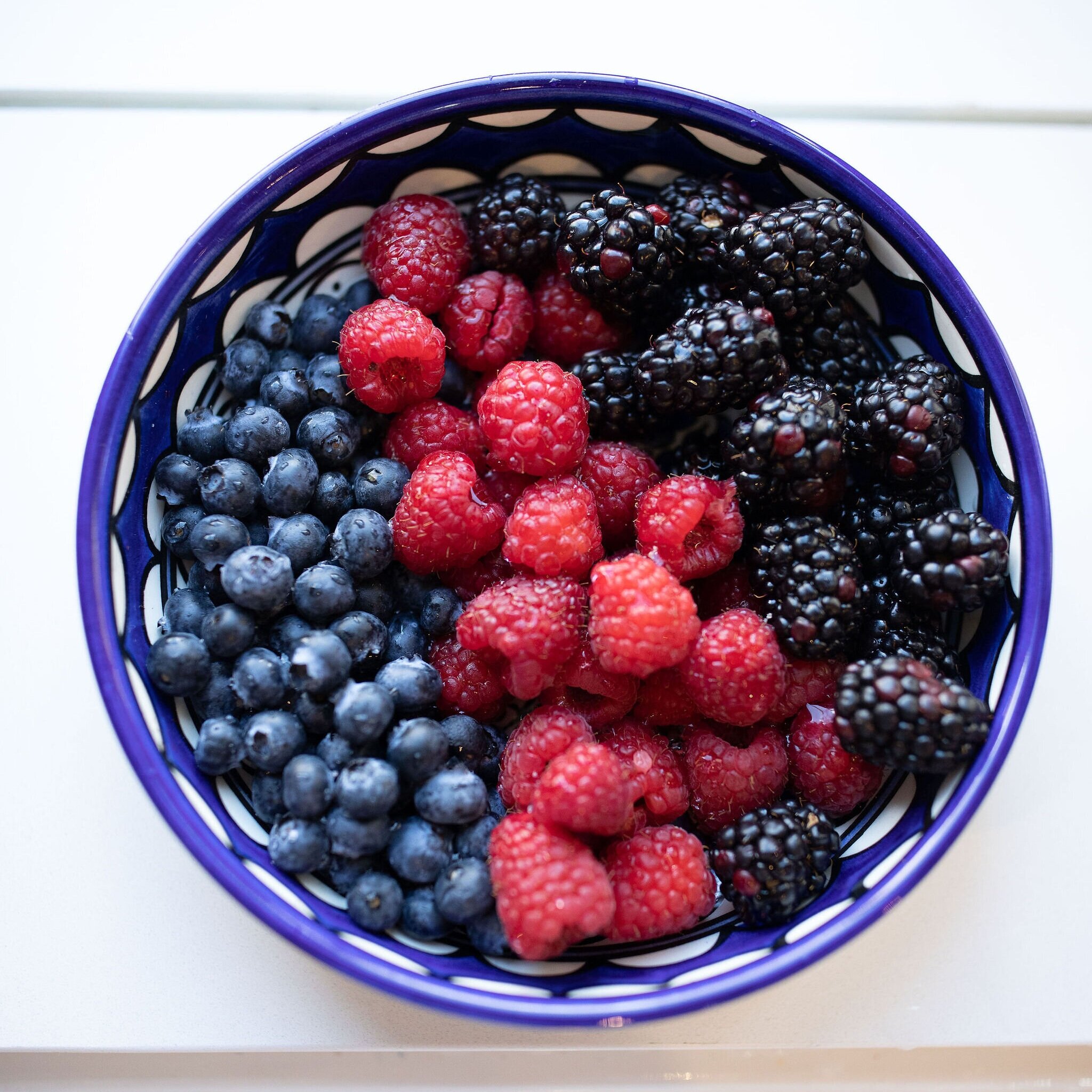Immune Supportive Foods
All photos in this post were taken by Kayla Robins of The Robin’s Nest.
As a Nutritionist, I focus on using food to heal and support the body as my primary tool. There are a lot of awesome supplements that can help support the body as well, but supplements do just that, they supplement a diet, not replace it. I believe that supplements will only take you so far if your diet is lacking in essential nutrients.
Being that we’re amidst a global pandemic right now and we’re all at home trying our best to stay healthy, I thought this would be a good time to share some of my favourite foods that support the body. A lot of these foods may be ones that you already consume regularly, so let’s dive into what they are doing for your body!
Onions
Onions, especially red ones, contain high amounts of quercetin. Quercetin is best known for it’s powerful antioxidant and anti-inflammatory properties. Antioxidants help to neutralize free radicals which are unstable cells in the body that cause damage. Onions are high in Vitamin C, B6, biotin, chromium, dietary fibre.
How to use: add sautéed onions to almost any savoury dish like roasted veggies, stirfrys, curries, sauces, or add raw onions to salads.
Ginger & Turmeric
Both of these beautiful roots have strong anti-inflammatory properties. Ginger contains a chemical compound called, gingerols, which helps to reduce nausea.
Curcuminoids are the active ingredients in turmeric that makes it such a powerful anti-inflammatory & antioxidant. Turmeric is also a great source of manganese. Manganese plays a role in bone formation and skin integrity.
How to use: peel the skin off (I like to use a potato peeler) + grate or dice the root to add it into soups, stirfry, salad dressings, and even smoothies!
Avocados
Avocados are a source of monounsaturated fat. Healthy fats help keep us full long after we’ve eaten. Avocados are loaded with fibre, vitamin K and folate. Fibre is essential for our immune system because it helps us produce regular bowel movements. Bowel movements are one of the ways that the body rids itself of toxins. Without regular elimination of stool, toxins will build up in the system. Getting adequate fibre and water everyday can help prevent constipation.
How to use: freeze chunks for smoothies, spread on top of toast, make guacamole, add to salads, chocolate avocado pudding.
Walnuts + Pumpkin Seeds
· Walnuts:
They are a very high source of omega-3 fatty acids which support cognitive function (hense why they look so much like brains!). Walnuts are best known for their positive impact on heart health and the circulatory system.
· Pumpkin seeds:
These amazing seeds contain Zinc, Vitamin E, have antimicrobial properties. Zinc is plays a critical role in keeping our immune system strong. Zinc helps protect the body from oxidative stress. Zinc has been shown to help reduce systems of lower respiratory tract infections in children. Zinc is an essential mineral required for the growth and development of normal cells.
How to use: mixed nut + seed butter, add them in trail mix, top yogurt/oats/salad, and homemade granola
Berries
Berries such as blueberries, blackberries, strawberries and raspberries are very rich in antioxidants, vitamin C & essential minerals. Another great feature I love about berries is that they are low glycemic fruits. This means that won’t spike your blood sugar in the same way higher sugar fruits might.
How to use: add on top of toasts, oats, yogurt bowls or salads, make smoothies, baked goods, jam
Citrus
Citrus fruits are a great source of Vitamin C & folate. Vitamin C is a water-soluble vitamin that helps support the immune system and is a primary antioxidant in the body. Vitamin C boosts the production of collagen in the body. Foods that are rich in vitamin C should be paired with iron-rich foods to increase the absorption of iron.
How to use: in salad dressing, oranges as snacks, lemons + limes in water
Kiwi
Kiwis actually contain significantly more Vitamin C than oranges are but for some reason, most of us think of oranges when we think of Vitamin C! Kiwis are rich antioxidants (specifically vitamins E & A). They are a good source of potassium, magnesium, copper & phosphorus.
How to use: eat on it’s own, add to yogurt bowls, in smoothies, fruit salads.
Bell Pepper
Bell peppers are another food that is very high in Vitamin C and are a rich source of phytonutrients from their bright coloured skin.
How to use: chopped in salads, sautéed or roasted, sliced to dip in hummus, in stir fries & burrito bowls
While this isn’t an exhaustive list because so many foods support our bodies in different ways, these are some that I love the most! Which of these foods are you favourites? Leave me a comment below!





